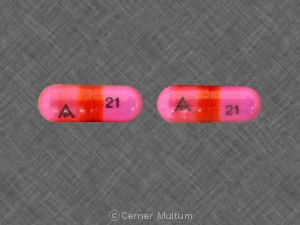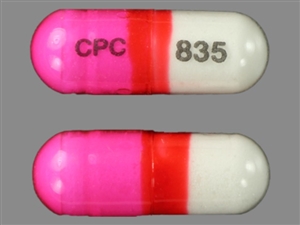While the drug is relatively safe it should not be. However Benadryl can pass through breast milk and affect your child.

Diphenhydramine Cs Mott Children S Hospital Michigan Medicine
Diphenhydramine has not been well studied for use in breastfeeding.

Is diphenhydramine hydrochloride safe while breastfeeding. Reports describing the use of diphenhyramine during breastfeeding have not been located. Two studies 14 with women who used an antihistamine not just diphenhydramine while breastfeeding reported their babies were irritable sleepier andor slept less. If pregnant or breast-feeding ask a health professional before use.
TC2D6JAD40 DIPHENHYDRAMINE - UNII8GTS82S83M DIPHENHYDRAMINE HYDROCHLORIDE. If you are breastfeeding and taking Benadryl lactation problems may occur. Store in original container protected from direct sunlight in a dry cool and well-ventilated area away from incompatible materials see Section 10 and food and.
Diphenhydramine Breastfeeding Warnings. Diphenhydramine is now available over the counter but that does not mean that interprofessional healthcare team members should not pay close attention to when patients are using it particularly if they are self-medicating. Ask a health professional before use.
The manufacturer of the medication recommends that breastfeeding women never take diphenhydramine since newborns and premature infants are especially sensitive to the medication. Also Benadryl is known to pass through breast milk. Benadryl is used to temporarily relieve the symptoms of allergies hay fever or the common cold.
Diphenhydramine is a first-generation histamine 1 receptor antagonist discovered in the 1940s 1. Yes Comments-The effects in the nursing infant are unknown. Consult a doctor before use.
Ask a doctor or pharmacist before use if you are taking sedatives or tranquilizers. 2 What is it. As you can see diphenhydramine hydrochloride has numerous side effects and it is therefore avoidable conditions during pregnancy.
The clinician MD DO NP PA nurse and pharmacist needs to educate the patient on the safe use of this agent. Diphenhydramine hydrochloride competitively blocks H1receptors thereby preventing the actions of histamine on bronchial smooth muscle capillaries and gastrointestinal GI smooth muscle. Be sure to discuss any medications you are taking and your options for breastfeeding with your health care provider as.
Breastfeeding women should not take diphenhydramine. The most frequently encountered secondary effects of diphenhydramine are related to central nervous system depression. Diphenhydramine while being safer with fewer cognitive side effects.
This medication can cause sleepiness in adults as well as the nursing baby. Although the levels are low in breastmilk two studies that examined the use of antihistamines such as diphenhydramine while breastfeeding reported their babies were irritable sleepier andor slept less. Diphenhydramine Hydrochloride Syrup is used for Common cold Runny nose caused by hay fever Red Irritated Itchy or watery eyes Airway irritation Allergies Motion sickness Insomnia and other conditions.
Use is not recommended-According to some authorities. The primary action of diphenhydramine is the antagonism of certain effect of histamine such as broncho-constriction and capillary dilation. Small occasional doses of diphenhydramine would not be expected to cause any adverse effects in breastfed infants.
The effects on a breastfeeding a baby are either mild or non-existent. Larger doses or more prolonged use may cause effects in the infant or decrease the milk supply particularly in combination with a sympathomimetic such as pseudoephedrine or before lactation is well established. As such a short-term or occasional combination of Benadryl and breastfeeding would not be expected to cause any effects in breast-fed infants.
Diphenhydramine Hydrochloride Syrup may also be used for purposes not listed in this medication guide. While some medications might treat the pregnant womans symptoms they can have adverse effects on the unborn baby. Before taking any medication during pregnancy it is important to know the potential effects that it will have for both the woman and the unborn baby.
Excreted into human milk. Diphenhydramine Hydrochloride Syrup may also be used for purposes not listed in this medication guide. Diphenhydramine Hydrochloride Injection USP Section 7.
Keep out of reach of children. Keep out of the reach of children. However numerous other sources state that the medication is probably compatible with breastfeeding.
This unit dose package is not child resistant and is intended for institutional use only. Theoretically it is possible that the medication could affect a womans milk supply since the medication can suppress prolactin a hormone important for breast milk production. Diphenhydramine Hydrochloride Syrup is used for Red Irritated Itchy or watery eyes Runny nose caused by hay fever Allergies Common cold Airway irritation Motion sickness Insomnia and other conditions.
Diphenhydramine Hydrochloride is the hydrochloride salt form of diphenhydramine an ethanolamine and first-generation histamine antagonist with anti-allergic activity. Diphenhydramine passes through breast milk. Benadryl While Breastfeeding The current data suggest that first-generation antihistamines like Diphenhydramine are minimally excreted in breast milk.
As diphenhydramine is excreted into breast milk consider less sedating antihistamines such as loratadine during breastfeeding where possible. In regards to breastfeeding. There are no available data.
Diphenhydramine has been detected in breast milk but the effect of this on breastfed infants is unknown. Do not use if imprinted safety seal under cap is broken or missing or - do not use if blister unit is torn or open. Diphenhydramine is not recommended for use during breastfeeding.
However at a time when you are breastfeeding you certainly do not want to deal with any of the side effects just mentioned. Diphenhydramine is an ethanolamine antihistamine with anticholinergic and sedative effects. It is used to treat allergy and cold symptoms such as sneezing runny nose watery eyes.
Its generally safe to use. Handling and storage Conditions for safe storage including any incompatibilities Store in accordance with local regulations.

Diphenhydramine Indication Dosage Side Effect Precaution Mims Philippines

Is It Safe To Give Infants Benadryl Benadryl Allergy Medication Allergy Medicine
Diphenhydramine Drugs And Lactation Database Lactmed Ncbi Bookshelf
:max_bytes(150000):strip_icc()/diphenhydramine-5083836_final-01-c93dba723ed94935ac01fa2ac7acb4bb.jpg)
Diphenhydramine Uses Side Effects Dosages Precautions

Diphenhydramine Michigan Medicine
